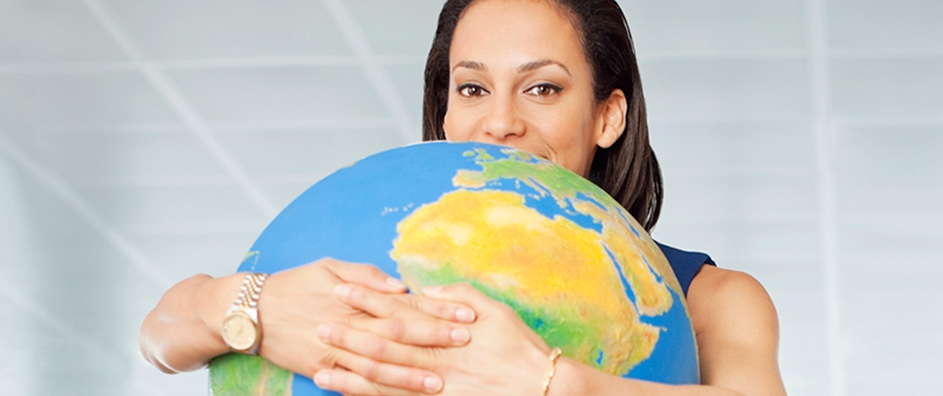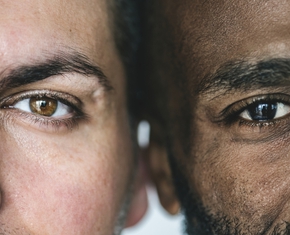The views expressed in our content reflect individual perspectives and do not represent the authoritative views of the Baha'i Faith.
Let’s be frank—climate change has become a partisan political issue, along with a whole host of other scientific and environmental concerns.
So how do Baha’is deal with it, given the fact that Baha’is take a non-partisan approach to social change—and the fact that Baha’is believe in the agreement of science and religion?
The Universal House of Justice and the National Spiritual Assembly of the Baha’is of the United States have provided Baha’is with clear guidelines about engaging in public discourse and social action while avoiding partisan politics. In practice, though, how do Baha’is apply that guidance? Specifically, what about the issue of climate change, which has been in the news a great deal lately because of the United States’ proposed withdrawal from the global 2015 Paris Climate Agreement?
Here are three non-partisan suggestions for anyone who wants to understand how to personally respond to the challenge of climate change.
1. First, Educate Yourself
The very first step in any journey is knowledge, so you’ll want to inform and educate yourself about climate change before you take any action.
Many, many scientists have studied our Earth’s climate and the effects human beings have on it—called anthropogenic climate change. Hundreds of books have been written, and thousands of scientific studies have been conducted. Official governmental panels have been appointed, and their conclusions are readily available at legitimate scientific websites. One excellent starting point is the United Nations Intergovernmental Panel on Climate Change (www.ipcc.ch), where you can find a series of reports from the global scientific community and its sub-groups.
The Intergovernmental Panel on Climate Change (IPCC) is the international body charged with assessing the science related to climate change. The IPCC, set up in 1988 by the World Meteorological Organization (WMO) and United Nations Environment Programme (UNEP), provides policymakers with regular assessments of the scientific basis of climate change, its impacts and future risks, and options for adaptation and mitigation. Their reports present rigorous and balanced scientific information to decision-makers; and participation in the IPCC is open to all member countries of the WMO and United Nations. It currently has 195 members—the vast majority of all the world’s countries. With thousands of scientists conducting, assessing and peer-evaluating its work, the IPCC is the world’s most trusted source of factual scientific information about climate change.
But if the IPCC studies and documents seem too technical, you can inform yourself about how climate change happened by reading any number of books or watching multiple documentary films about the subject, such as the video by the IPCC on their Fifth Assessment Report or the introductory video Climate Change Explained.
Many people like Merchants of Doubt, the 2010 book and 2015 documentary film by Naomi Oreskes, Professor of the History of Science and Affiliated Professor of Earth and Planetary Sciences at Harvard University (she coauthored the book with Eric M. Conway, another historian of science). The book and the documentary cover the origins of why people have shed doubt on the science of climate change. A detailed article in the New York Times reports about more recent development in the United States, where climate change has gone from science supported by both parties to a partisan political issue.)
Also, you might want to look at the International Environmental Forum’s course called “Scientific and Spiritual Dimensions of Climate Change”. This interfaith study course, written from a Baha’i perspective, includes a great deal of information on the subject from a spiritual point of view.
2. Decide How to Respond.
What can we do about climate change in this highly charged political situation? Should we just ignore climate change and turn our vision inward? For Baha’is, the clear answer is no. The April 27, 2017, letter from the Universal House of Justice’s Department of the Secretariat states that “There can be no question . . . that Baha’is are committed to efforts toward social transformation” and calls on them to avoid the false dichotomy “that one must choose either non-involvement or social action” (par. 6, 12). The Universal House of Justice, in the same letter, also makes it quite clear that climate change belongs to the category of issues in which Baha’is should be engaged:
Individual Baha’is are free to participate in those efforts and activities, such as peaceful rallies, that uphold constructive aims in consonance with the Baha’i teachings, for example, the advancement of women, the promotion of social justice, the protection of the environment, the elimination of all forms of discrimination, and the safeguarding of human rights. – paragraph 6.
While it is obvious to most people that climate change creates the environmental problem with the most severe and long-lasting consequences, not everyone agrees. Led by ideology and vested interests, a small minority of scientists have taken issue with the scientific consensus on climate change, and a vocal group of so-called “climate deniers” have followed. A detailed article in the New York Times reports about more recent development in the United States, where climate change has gone from science supported by both parties to a partisan political issue.
Of course, everyone has the right to their own opinion—but we do not have the right to our own facts, as the Baha’i teachings clearly point out:
… there is a great difference between facts sustained by science and theories upheld by blind belief which is the result of traditional susceptibility of conscience. – Abdu’l-Baha, Divine Philosophy, pp. 104-105.
There is no contradiction between true religion and science. When a religion is opposed to science it becomes mere superstition: that which is contrary to knowledge is ignorance.
How can a man believe to be a fact that which science has proved to be impossible? If he believes in spite of his reason, it is rather ignorant superstition than faith. The true principles of all religions are in conformity with the teachings of science. – Abdu’l-Baha, Paris Talks, p. 141.
3. Take Action.
Once you’ve independently investigated the truth about climate change and decided how best to respond, transform your concerns into action. Personally, you and your family can do many things that will help mitigate the impacts of climate change, from using less fossil fuel-created energy to conserving and recycling resources to simply buying fewer consumer goods. Collectively, you can join any number of effective environmental groups that work hard every day to protect the environment, and help those groups succeed in meeting their goals. From a global perspective, you could take part in the activities in your local Baha’i community, and join a concerted worldwide effort to bring spirituality, love and justice to humanity—which will ultimately impact the Earth’s environment more positively than just about any other action.
You May Also Like
Comments

















We also agree that there is one Plan of God, we just think it's the same as ours.
Love to all,
Paul
and
https://en.wikipedia.org/wiki/List_of_scientists_opposing_the_mainstream_scientific_assessment_of_global_warming
If you look at Powell, 2013 from the first article, you will see that over 9000 individual authors were reviewed in their publications and only 1 rejected anthropogenic climate change. If you look at the second link, there are perhaps 100 authors listed.
Lastly, you are ignoring Abdul Baha as quoted above "...The true principles of all religions are in conformity with the teachings of science."
1. Here's a report that was apparently touted on Breitbart that says the data are compromised and therefore the claim that there is climate change is based on bad data: https://thsresearch.files.wordpress.com/2017/05/ef-gast-data-research-report-062717.pdf
2. Here's the snopes article that debunks it. http://www.snopes.com/climatology-fraud-global-warming/
3. Here's the "why" that the report in #1 is getting wrong. http://advances.sciencemag.org/content/3/1/e1601207.full
Basically, data were collected at different times, locations and by different methods, thus normalizing is needed to get good analysis.
https://skepticalscience.com/
https://skepticalscience.com/
This is the short introduction from the website:
Scientific skepticism is healthy. Scientists should always challenge themselves to improve their understanding. Yet this isn't what happens with climate change denial. Skeptics vigorously criticise any evidence that supports man-made global warming and yet embrace any argument, op-ed, blog or study that purports to refute global warming. This website gets skeptical about global warming skepticism. Do their arguments have any scientific basis? What does the peer reviewed scientific literature say?